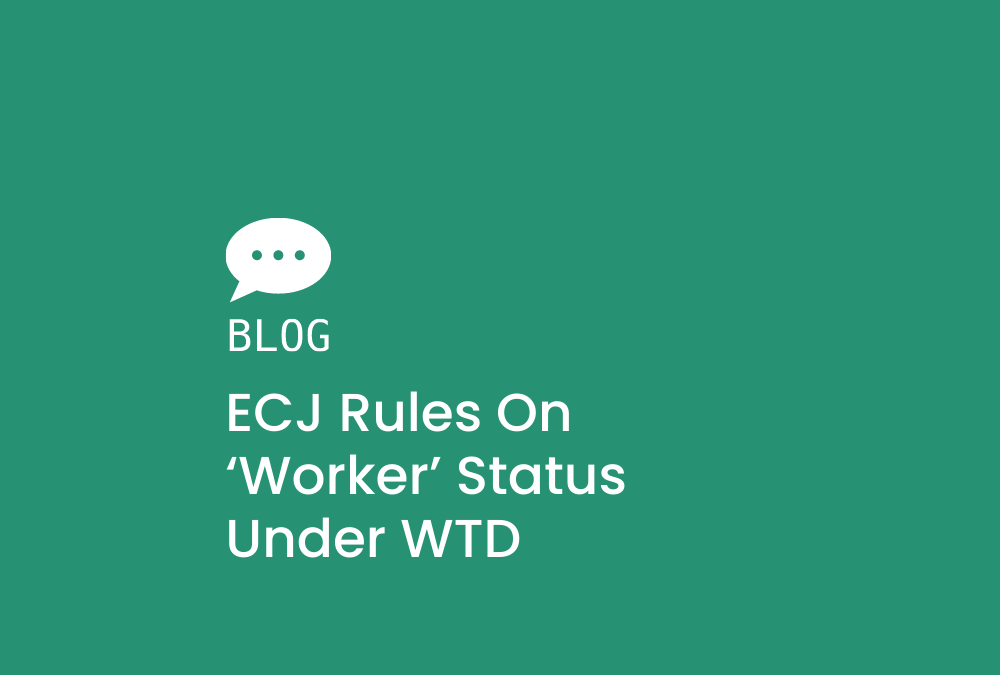ECJ Rules on ‘worker’ status under WTD
Currently in Employment law there is much debate over who is classed as a worker. It has created a grey area in the law developed by the emergence of the gig-economy which has been started by companies such as Uber and Amazon. The case below may provide some much-needed clarity over this debate.
The European Court of Justice (ECJ) has recently heard the case of B v Yodel Delivery Network Ltd. The case was to determine whether a delivery driver, who was working for the parcel delivery company yodel, was classed as a worker for the European Working Time Directive.
The facts of the case were that B’s courier service agreement stated he was a self-employed independent contractor. He would use his own vehicle and mobile phone to communicate with customers. To use the software provided by Yodel on their hand-held delivery device, he had to undergo training. He was under no obligation to deliver the parcel’s personally, but Yodel could deny the use of a substitute if the said substitute did not have the required skills or qualifications. There was no requirement from Yodel to provide work and no requirement from B to accept the work. Drivers are able to choose the route and time they deliver parcels unless it is a fixed-time delivery, but drivers did have to work from 7:30am to 9pm. The drivers were paid a fixed rate per parcel.
The ECJ highlighted factors such as:
• the power of substitution;
• no work needed to be provided or accepted (the mutuality of obligation); and
• the worker was subject to as little control as possible, he could work his own hours and drive his own route.
They stated that where an individual has the power to choose the manner in which his tasks are performed, the time and place of work – these factors would lend themselves to a relation of an independent service provider. They did however state that an essential part of the employment relationship was that an individual performs tasks under the direction of another person, and for that person in return for remuneration, which is what was happening in the case.
The ECJ made a ruling by way of reasoned order, which essentially means they have given guidance on what will determine the classification but they will refer the question back to the courts which originally referred the case to the ECJ and the referring court will use existing case law to answer the question.
The ECJ went on to highlight to the employment tribunal the factors that would carry significant weight when they make their ruling. They noted that the claimant appeared to have a great deal of freedom in terms of his relationship with Yodel. They stated the tribunal would have to look at the practical reality of the situation and decide whether the apparent freedom was notional. The second factor that would carry significant weight would be whether the relationship between the claimant and Yodel was one of a subordinate, to do this the tribunal would need to look at the factors the analysed above.
From the decisions, regarding these factors, made by the tribunal it would be for them to decide whether the claimant was classed as a worker.
The decision which will eventually be made could have a major impact on the gig economy which has recently seem a boom in the UK so it will be very interesting to see the outcome of the hearing.

